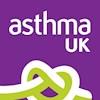Hi all,
I hope everyone is well and staying safe😊 .
We wanted to post something about the use of pulse oximeters as these generate lots of discussion on here.
For Asthma: pulse oximeters are NOT currently recommended as part of an asthma care plan (unless specifically directed by an appropriate health professional), this is because they can prevent people from accessing emergency advice by giving a false sense of security. The best way to monitor your asthma is with a Personal Asthma Action Plan (PAAP) asthma.org.uk/advice/manage..., being aware of worsening symptoms, extra use of your reliever inhaler and drops in peak flow readings - these should direct you to get extra support/help from a health professional.
For COVID: Dr Andy Whittamore, clinical lead for Asthma UK and the British Lung Foundation, said, “At this stage, while the use of pulse oximeters in response to COVID is still being examined, it remains really important that before testing at home, people talk to their health care professional. Home use oximeters, which are available for sale online and in chemists, and can be used to measure the levels of oxygen in your blood, can sometimes give poor or inaccurate measurements. It is vital that anyone with questions on using a pulse oximeter at home speaks to a health care professional for advice. Any monitoring done at home needs to be part of a clear management plan and is not a substitute for clinical advice. Anyone worried about their symptoms should speak to a health care professional.”
Updated advice March 2023:
According to UK and US Asthma guidelines there is NO PLACE for routine oxygen monitoring in people with asthma. In the rare cases where it is useful, it will be on the advice of a hospital consultant who is specialist in asthma.
When someone is having an increase in asthma symptoms or starting an asthma attack there are lots of things that change in the body before oxygen levels drop. In fact, your body breathes faster and your heart pumps faster to help keep your oxygen levels within normal limits.
Symptoms, the response to medication and peak flow are more reliable signs that you need to take action (contact your GP surgery or 111, or follow your action plan). Once your oxygen levels have dropped you are in a life-threatening phase - any action should have been taken long before this.
Many people were given oxygen monitors (oximeters) when they had COVID19. This is because the pattern of that disease, which is very different from asthma, did cause drops in oxygen levels in some cases. Having a monitor at home allowed people with covid19 to keep an eye on how covid was affecting their lungs and oxygen levels without having to leave the house and risk infecting other people.
Updated advice Jan 2025
Some people may have oxygen monitors (oximeters) for monitoring other lung conditions . If monitoring is recommended in other lung conditions, this is usually agreed between their health care professional and the patient with a plan to support their care ( safety netting advice, etc) Oxygen meters are not appropriate for everyone and the guidance on the use in asthma remains unchanged .
So for asthma, follow your personal plan and act on increase of symptoms, drops in peak flow and/or need for extra reliever medication. asthmaandlung.org.uk/condit...

